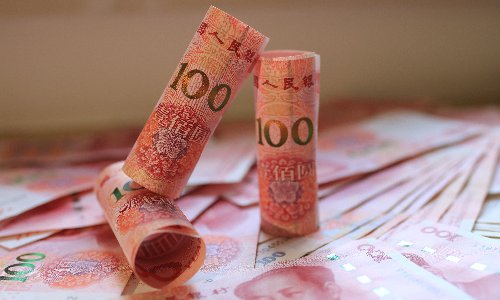HOME >> SOURCE
Opening floodgates does not solve China’s economic problems
By Wang Jun Source:Global Times Published: 2020/3/1 21:23:33

File photo
The spread of the novel coronavirus pneumonia (COVID-19) has created a chain of panic worldwide, and the global market has felt the shock. Last week, the US stock market experienced one of its darkest moments since 2008. The Chinese economy has also been damaged due to the COVID-19. The Chinese government has issued a series of measures to help small and medium-sized enterprises revive and develop. These moves focused on short-term economic relief, but nothing like China's large-scale stimulus package in 2008.It should be taken cautiously to roll out such a stimulus package. It requires acute observations to decide whether stimulating the economy with a large density is necessary in China.
As the number of confirmed cases have shown, the COVID-19 in China, aside from Central China's Hubei Province, has been close to completely contained. If the current trend continues, the country should be able to bring the outbreak of the epidemic into effective control in March. In this situation, there is no imperative need for a massive stimulus.
The past large-scale stimulus package generated side effects. The 4-trillion-yuan stimulus, revitalization plan for 10 industries and monetary easing have had a negative impact, such as a high leveraging ratio and overcapacity for China's economy, which the country is still absorbing and digesting.
China needs to stabilize its economy, but changing its economic structure in more crucial. The problem of the Chinese economy should be solved through reform rather than lifting the floodgates. The attempt to resort to stimulus and easing will bring deeper problems.
Macroeconomic adjustments and injecting liquidity into the real economy have been taking place even before the COVID-19 outbreak by cutting targeted reserve requirement ratio to support small and micro enterprises, as well as implementing a market-oriented loan rate reform and lowering the financing cost of the entire economy.
Those measures cannot simply be equal to easing or opening floodgate. Professional monetary policy is based on economic realities. And it also should closely follow the economic situations and try to get ahead of them.
Authorities have set up policy direction before the outbreak causes disturbances. The government has issued pertinent and appropriate countermeasure toward the epidemic. It is still not the time to spur the economy by all means.
The monetary policy needs to be more flexible and up to contingencies. At the same time, it should be moderate, which by no means is monetary flooding. Opening the floodgates does not solve fundamental problems and the current problem is not a lack of liquidities.
The epidemic sends a shock to the demand side of the market. As everything resumes back to its normal order, demand and consumption will gradually recover.
The author is a member of the academic committee at the China Center for International Economic Exchanges and chief economist with Zhongyuan Bank. bizopinion@globaltimes.com.cn
Posted in: EXPERT ASSESSMENT